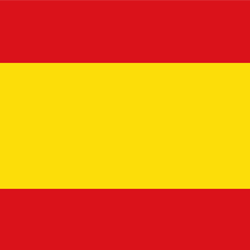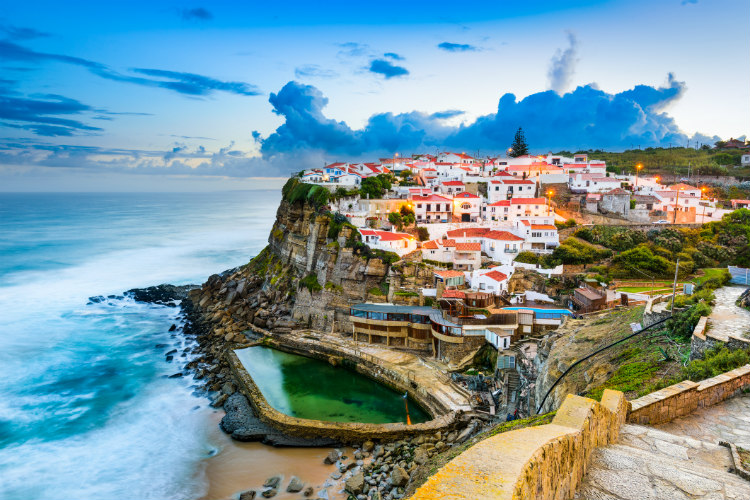Tackling a mortgage can be stressful no matter which country you do it in but don’t put it off – in Portugal it’s best to start dealing with your mortgage before almost any step of the property purchase process.
Start as early as possible by getting an ‘Approval in Principle’ (AIP), before you’ve even decided on the property, as this will help you establish affordability.
Other simple due diligence and preparation will go a long way to making your mortgage process less troublesome for you too.
Are there restrictions on non-EU residents?
There are actually no real restrictions on buying Portuguese property due to Portugal’s golden visa schemes, but most banks will likely offer smaller lending terms to a foreign buyer compared to an EU buyer.
This is part of why there was a surge in interest in Portugal from British nationals following the 2016 Brexit vote.
Typically, most banks will only offer to lend up to 65% of the assessed value of a property or sale price for non-residents – known as the loan-to-value (LTV) ratio. The lower price will be the one the bank finds the LTV for.
Those who already pay taxes in Portugal are more likely to find opportunities to borrow as much as 85-90% of the sale price on a property. This may require assistance from an experienced mortgage broker or lawyer however.
Loans for EU residents may typically stretch to 50 years, and 30 years for non-residents.
Either way, you will likely need to pay a minimum of 20% of the property’s purchase price as a deposit, as you are unlikely to be able to borrow more than 80% of the purchase price unless you are already paying taxes in Portugal.
Types of mortgage in Portugal
Most banks and lenders in Portugal will offer you two types of mortgage, but the options of these mortgages will differ slightly from lender to lender so it wouldn’t hurt to do some research on your lender beforehand.
The most common type of mortgage is the ‘variable-rate’ type. This type has you paying back monthly amounts that differ over time depending on the interest rate. For most non-residents, this sort of loan term would last up to 30 years.
Another option is a ‘fixed-rate’ mortgage, which allows borrowers to fix a certain constant rate for a certain period of time. This protects against things like changes in bank rates and can range from just one year to as many as 30 years. Most lenders will only offer this short-term, however.
Finding interest-only deals has become rarer in recent years and most banks now only offer loans on a repayment basis. Some interest-only deals are still available if you look hard enough though.
What will you need for the process?
As with most property purchases, you’ll need to have a lot of documents to hand to make sure things go smoothly. One of the earliest parts of securing a mortgage is being financially assessed by your chosen bank or lender.
The bank will ask for financial information from you, such as any details on various incomes or dividend payments you may have, as well as any outstanding debts. You can provide evidence for this information through things like pay slips and pension slips, tax returns, bank statements and so on.
Your net income will be evaluated and the bank will make a decision on whether you will be able to handle the mortgage loan term.
The bank will also evaluate the value of the property you have in mind before making its final decision on lending.
If you have a lawyer they will help you with the legal nitty gritty, but definitely be prepared to have important documents like passports, proof of address, bank statements and pay slips, copies of tenancy agreements and your Portuguese tax number at hand – if applicable.
Other things to keep in mind
Unsurprisingly, getting a mortgage is slightly different from country to country and even from lender to lender. Here are a few more things to be aware of.
While some brokers will be able to arrange mortgages that do not require home or life insurance, in most cases it is compulsory to have both.
There are often other extra costs and fees when buying Portuguese property too, some of which can add up to 10-15% onto the purchase price. For example; resale properties have transfer tax, and new properties have value-added tax (VAT) and utility fees.
On top of this, there are notary’s fees, deed registration fees, fees from the selling agent as well as potential legal and surveyor fees. Keep these in mind so you don’t end up declaring a price well below the actual value.
One more tip; it may be good to consider looking for properties which have been repossessed by banks. It’s possible to borrow an even bigger chunk of the sum on some of these, with some lenders even willing to offer 100% loan-to-value (LTV) on them.
It’s good to start the mortgage process as early as possible but that doesn’t mean rushing – it just means making sure you begin preparing earlier!
It can already help a lot to simply keep these core points in mind and just be diligent and prepared throughout, but if you’re willing to pay a little more in legal fees a lawyer can give you additional help when it comes to agreeing a mortgage in Portugal.









